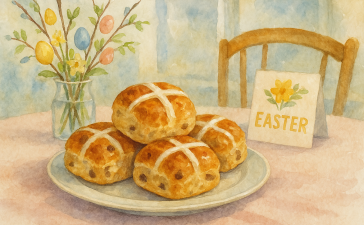Easter is one of the most widely celebrated religious holidays observed by Christians around the world. It commemorates the resurrection of Jesus Christ from the dead, as described in the New Testament of the Bible. The significance of Easter lies in its central message of redemption, hope, and renewal.
The origins of Easter can be traced back to ancient times, where it has roots in various cultural and religious traditions. The name “Easter” is derived from the Old English word “Ēastre” or “Ēostre,” which was the name of a pagan goddess associated with spring and fertility. The Christian celebration of Easter coincides with the Jewish festival of Passover, as the events surrounding Jesus’ crucifixion and resurrection are believed to have occurred during the Passover festival.
For Christians, Easter is the culmination of the Holy Week, which begins with Palm Sunday commemorating Jesus’ triumphant entry into Jerusalem and concludes with Easter Sunday, marking his resurrection. The significance of Easter lies in the belief that Jesus, the Son of God, was crucified on Good Friday to atone for the sins of humanity, and rose from the dead three days later, conquering death and offering the promise of eternal life to believers.
Easter holds profound spiritual significance for Christians as it symbolizes the victory of life over death and the triumph of good over evil. It is a time for believers to reflect on the sacrifice of Jesus Christ and the promise of salvation through faith in him. The resurrection of Jesus is seen as the ultimate demonstration of God’s love and mercy, offering forgiveness and redemption to all who seek it.
The celebration of Easter is marked by various customs and traditions observed by Christians worldwide. These include attending church services, participating in religious processions and ceremonies, and engaging in acts of charity and goodwill. Many Christians also observe fasting and abstinence during Lent, the forty-day period leading up to Easter, as a form of spiritual preparation and self-reflection.
In addition to its religious significance, Easter has also become a cultural phenomenon celebrated by people of diverse backgrounds and beliefs. The symbolism of Easter, with its themes of rebirth, renewal, and new beginnings, resonates with people across cultures and faiths. As springtime heralds the end of winter and the emergence of new life, Easter serves as a time to celebrate the arrival of warmer weather, blooming flowers, and longer days.
The customs and traditions associated with Easter vary from region to region, but some common practices include decorating Easter eggs, symbolizing new life and fertility, and participating in Easter egg hunts. The Easter Bunny, a popular symbol of Easter in Western culture, is believed to deliver Easter eggs and treats to children on Easter Sunday.
The widespread observance of Easter by people of different religious backgrounds is a testament to its universal appeal and significance. While Christians commemorate the religious aspects of Easter, others may celebrate it as a secular holiday, enjoying time with family and friends, indulging in festive meals and treats, and participating in fun-filled activities.
In conclusion, Easter is a holiday of profound spiritual significance for Christians, commemorating the resurrection of Jesus Christ from the dead. It is a time to reflect on the message of redemption, hope, and renewal, and to celebrate the victory of life over death. While Easter is rooted in religious tradition, it has also become a cultural phenomenon celebrated by people around the world, uniting communities in the spirit of joy, fellowship, and goodwill.
Want to learn more? We’re here to help you to take action, just like we’ve helped thousands of other entrepreneurs, business owners, and creative professionals all around the globe. Now is the time to let your passion SHINE. Now is the time to Make Tomorrow Today! To your success, Vinh Van Lam and Stuart Horrex Cofounders
ArtSHINE.com





